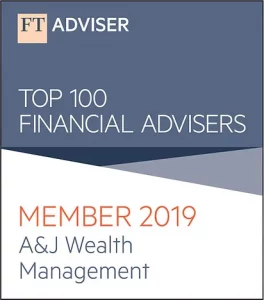Venture Capital Trusts
Venture Capital Trusts (VCT)
The Venture Capital Trust scheme was set up to encourage individuals to invest in certain types of small, higher risk trading companies not listed on the official list of any stock exchange.
A VCT must predominantly hold the shares and securities of unlisted companies. By investing in VCTs investors are able to spread the investment risk over a number of companies. Investments can be made by subscribing for new shares when a trust is launched, or by purchasing shares from other investors after the trust is established.
The rate of income tax relief for investments in qualifying VCT shares was increased from 20% to 40% for shares issued in the 2004/05 and 2005/06 tax years then reduced to 30% for shares issued on or after 6th April 2006. The annual investment limit for shares issued on or after 6th April 2004 is £200,000.
Relief is withdrawn if the shares are disposed of within 5 years except to a spouse and not on the death of the investor. Dividends received from VCT investments of up to £200,000 per tax year are exempt from any additional income tax although the tax credit cannot be reclaimed.
Capital gains tax deferral relief is no longer available for gains reinvested in VCT shares issued on or after 6th April 2004.
Gains arising on the disposal of VCT shares that were acquired by subscription or purchase are exempt from CGT and there is no minimum period for which the shares must be held. Any losses on VCT shares are not allowable losses for CGT purposes. Neither are they available to offset against other capital gains.
VCTs have to be approved by HMRC and must be listed on the Stock Exchange. Additionally, all of the money raised by a VCT must be employed within two years, and the income must be mainly derived from shares or securities and it must not retain more than 15% of the income.
At least 70% of the VCT investments must be in “qualifying holdings” which are newly issued shares in qualifying unlisted trading companies. Not more than 15% of its total investment must be invested in any single company or group.
A company raising money under a VCT must have fewer than 250 full time employees at the date on which the shares are issued.
To be a qualifying holding of a VCT, a company must have raised no more than £5m under all venture capital schemes in the twelve months ending on the date of the investment – if exceeded, none of the shares will rank as a qualifying holding for a VCT.
The VCT itself is exempt from corporation tax on gains arising on the disposal of its investments, and theses realised gains can be distributed to investors as dividends, with no additional tax liability for the investor.
A VCT has a five year holding period for the retention of income tax relief, although it may be difficult for an investor to sell their shares after that time, even though the shares are listed. Demand for existing shares will be weak as the tax relief is only available on subscriptions of new shares, not on those bought in the market.
A VCT should be a lower risk investment than an EIS. A VCT is a pooled investment, although the underlying investments are relatively high risk, while an EIS is an investment in a single company.
Get In Touch
Leave us a message
A&J Wealth Management Ltd
Sawfords
Bigfrith Lane
Cookham Dean
Berkshire
SL6 9PH
01628 480200
enquiry@ajwealth-management.com
Phone:
01628 480 200
Email:
enquiry@ajwealth-management.com
Address:
Sawfords,
Bigfrith Lane,
Cookham Dean,
Berkshire,
SL6 9PH
© 2024 A&J WEALTH MANAGEMENT LTD A&J Wealth Management Ltd is authorised and regulated by the Financial Conduct Authority. Financial Services Register, no 428590, at www.fca.org.uk/register Registered in England, Company no: 5105933. Registered Head Office: Sawfords, Bigfrith Lane, Cookham Dean, Maidenhead, Berkshire SL6 9PH






